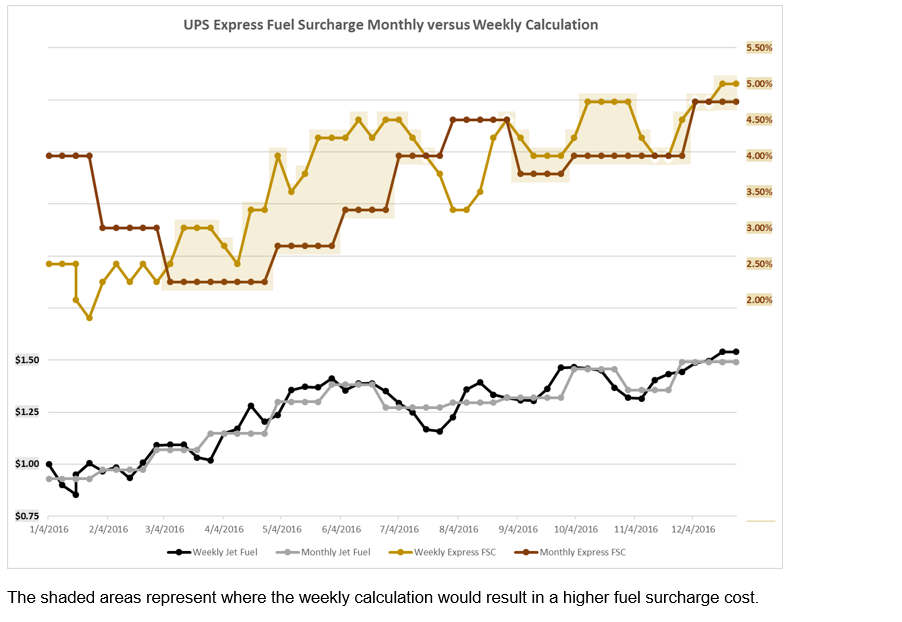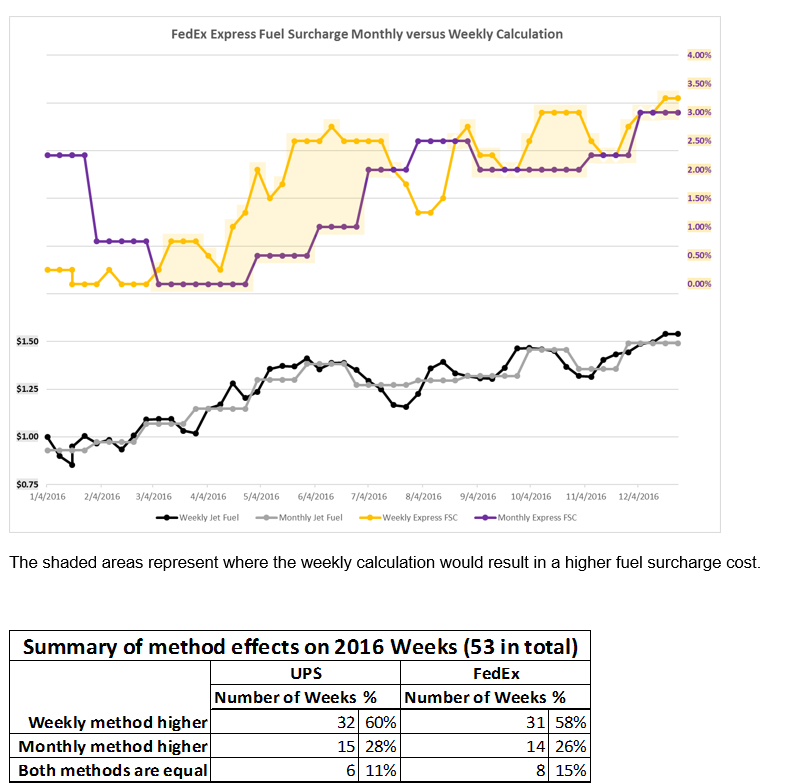This article originally appeared in the May/June issue of PARCEL.
As part of their 2017 rate changes, UPS and FedEx have changed the way they calculate fuel surcharge as of February 6. Instead of calculating based on the monthly jet fuel average price two months previous, they are calculating based on the weekly average two weeks previous.
The below graphs represent the differences between the monthly vs weekly methods of express fuel surcharge calculation. It is clear by these graphs that as jet fuel prices trend higher, the weekly calculation raises the fuel surcharge with a faster response. The net result is that most of the 2016 year would have been at a higher fuel surcharge.


For both UPS and FedEx, about 60% of the year would have been at a higher fuel surcharge with the new weekly calculation method.
Import / Export
It’s important to note that UPS has changed the way it assesses the fuel surcharge on international air services as well. Although it has the same basis as domestic air (jet fuel pricing), the index is different and has resulted in a higher surcharge than both air and ground services. Since this new fuel surcharge has been assessed, beginning February 6, it has run from 1.5% to two percent higher than the domestic air surcharge. FedEx has not announced any plans to follow suit on this change, so its international fuel surcharge remains the same as domestic express.
Conclusions
Negotiating terms on the transportation and surcharges could prove to be more valuable than just negotiating fuel, since a reduction on transportation would save on both the transportation and the fuel surcharge. Prioritizing where the most potential savings lie is crucial to your negotiation strategy. It’s worth mentioning that now could also be a time to examine other carriers. The US Postal Service does not assess a fuel surcharge, and regional carriers may offer lower cost alternatives as well.
Current agreement terms and any new proposals need to be evaluated using the new calculation methods. Frequently, shippers negotiate an incentive on the fuel surcharge and sometimes even a custom index. Most of current terms on fuel were set under the monthly calculation. If the agreement is two years old or more, terms were also set under significantly different fuel market conditions and indices.
Mark Taylor is a Transportation Project Manager at enVista and a recognized transportation expert. With a background that includes operations, transportation network engineering, new service development, and parcel spend management, he brings a unique perspective to managing parcel programs.


















